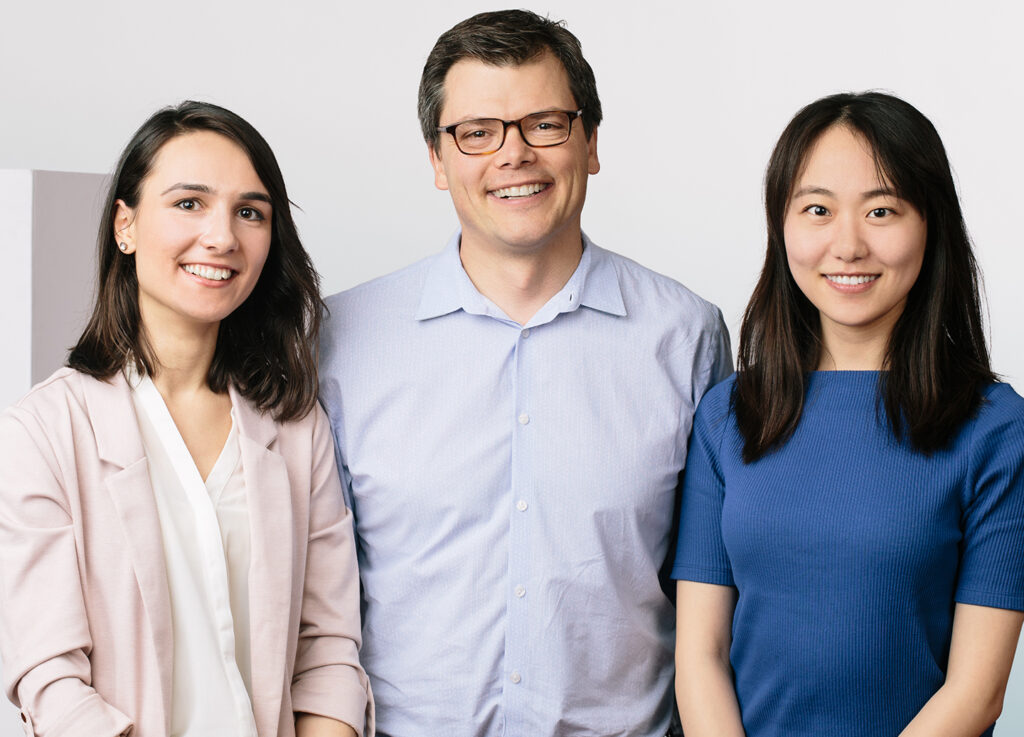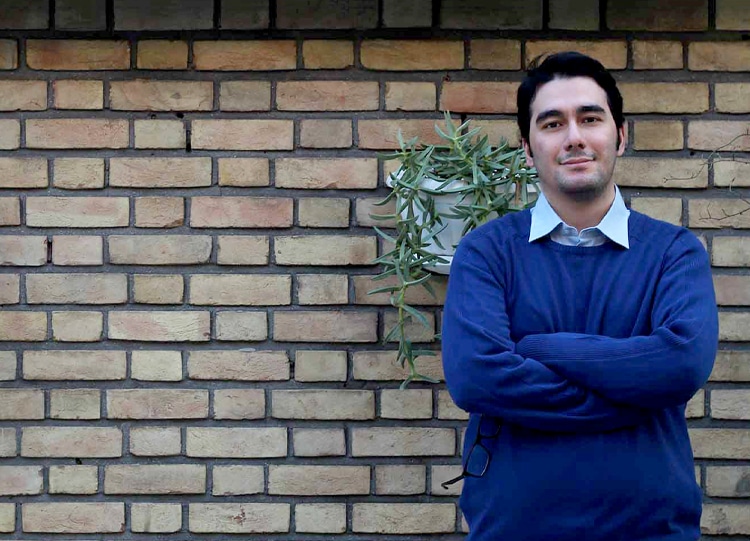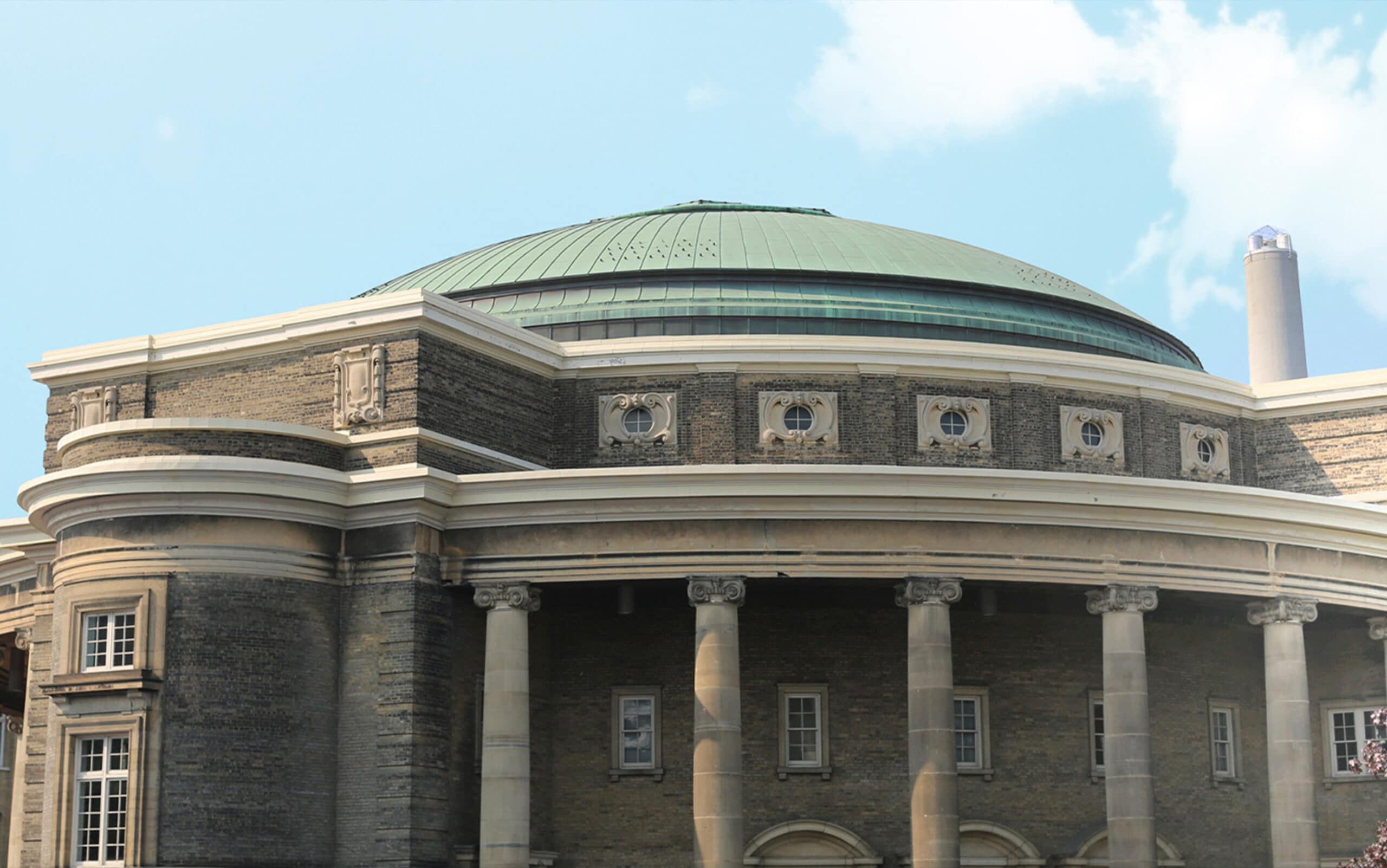Meeting the greatest need: the power of an unrestricted gift
Generous gifts designated for the “area of greatest need” empower researchers working on the cutting edge of research, fund important capital projects and meet sudden emergencies.

When the COVID-19 pandemic began in early 2020, the student founders of the startup LSK Technologies (LSK), who had been building a portable lab to do virus tests in remote communities, immediately pivoted to adapt their device for COVID-19.
Part of LSK’s funding for that pivot came from a prize set up by engineering alumnus Dongjun Wang. The University of Toronto matched the award through the True Blue Fund.
“That matching was possible because of kind donors who made an unrestricted estate gift,” says Michelle Osborne, Executive Director, Gift Planning at the University of Toronto. “These are bequests that donors leave to the area of greatest need. We deeply appreciate them because they give the University the gift of choice.”
The choice to support new technologies as they are discovered
One-third of donors make unrestricted gifts to a faculty, college, or the University as a whole, says Osborne. U of T allocates these gifts to the highest priority at the time the monies are received. “In the case of the True Blue Fund,” she says, “you can really see their power, because those donors are now supporting technology that might not even have existed at the time their bequest was promised. And they are helping us attract other donors.”
Thanks to unrestricted gifts, the University is able to fund key priorities and create opportunities like the True Blue matching program, which doubles innovation awards at U of T’s nine startup accelerators. When engineering alumnus Dongjun Wang set up the Dongjun Wang Family Prize in 2019, True Blue doubled the power of his gift. LSK Technologies—and people around the world—are benefiting.
LSK’s lab-in-a-box runs off a battery, doesn’t require refrigeration, and can do tests at very low cost with results available in an hour. The team have stepped up trials in Toronto, Vietnam and Brazil and hope to get the device to market in early 2021.
“We are looking forward to a world where we won’t be looking at a pandemic situation again,” CEO Seray Çiçek told U of T News in September. “If we had been able to screen people better earlier this year, then perhaps we could be all meeting in person right now.”

The choice to support urgent student needs
When Ukraine International Airlines flight PS752 was shot down near Tehran, Iran in January 2020, the world grieved the senseless loss of 176 people, most of them Iranians and Canadians. Eight U of T community members lost their lives, including students Mojtaba Abbasnezhad, Mohammad Asadi Lari, Zeynab Asadi Lari, Mohammad Amin Beiruti, Mohammad Amin Jebelli and Mohammad Salehe – aspiring engineers, doctors, computer scientists and more.
The University set up a scholarship fund in memoriam, drawing on unrestricted estate gifts to match the first $250,000 donated to the fund at the rate of 3 to 1, and all further gifts dollar for dollar.
The Iranian Memorial Scholarship Fund is now supporting four brilliant students in their studies, including Mehrdad Jafari Raad, a composer of concert music in the second year of his Doctor of Musical Arts at the Faculty of Music.
“I have to say that the Iranian Memorial Scholarship truly is a big help to me in these difficult times,” says Raad. “This past year was pretty tough; we heard much terrible news from Iran and recently, due to the COVID-19 situation that has radically changed our lives, my wife and I are finding it very hard to find any job. This award allows me to focus more on my studies and compositions and I am honoured and delighted to receive it.”
The choice to build capital projects that create the conditions for academic excellence
Unrestricted estate gifts are also helping the University complete the Landmark Project, the revitalization of the St. George’s campus’s historic central landscape. Including an underground geoexchange field to reduce the University’s climate footprint as well as a re-landscaped, pedestrian-friendly Front Campus, the important project will have a profound and positive impact for years to come.
Ronald G. Macdonald, a U of T alumnus, left a generous gift for U of T’s greatest needs when he passed away unexpectedly in 2016. The University allocated a portion of the bequest to the Landmark Project, where it will help build the RG Macdonald Plaza at the foot of the Soldiers’ Tower.
As students and friends gather to chat, listen to the music of the tower’s carillon, or attend solemn Remembrance Day ceremonies, they’ll enjoy the deep benefits of the project—a peaceful oasis in the midst of a busy campus and city. That kind of space, both mental and physical, is essential to dynamic and creative thinking.
“Donors who make unrestricted gifts can be confident their generosity will have a big impact,” says Osborne. “They can be assured that their gift will support the most important priorities at the time they are received.”

